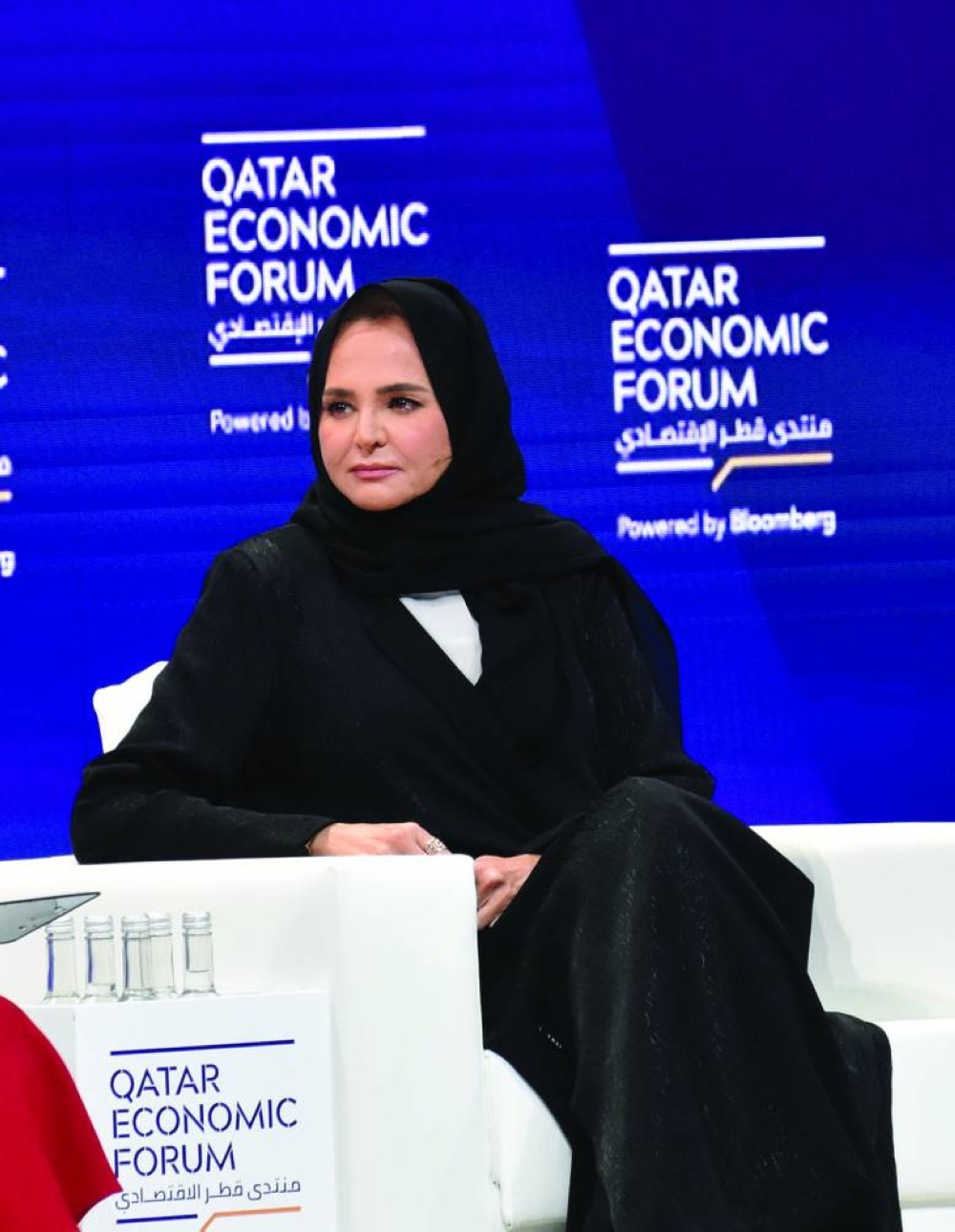The Middle East is struggling with a concerning gap between education and job market demands, worsened by years of instability and rapid technological advancements, leading to millions of unemployed youth, Injaz Al Arab chairperson Sheikha Hanadi N al-Thani told the Qatar Economic Forum (QEF).
During a panel discussion on *2024: Not Business as Usual on Wednesday, she said: “Let’s put it into context. I think we have one of the highest percentages of youth population in the world.”
“Sixty-five per cent of the population of the Mena (Middle East and North Africa) region is under the age of 25,” Sheikha Hanadi stated. “If you take it into consideration, this is around 200mn people ... so we have around 50mn people who are jobless.”
“How did we get there? We are a region that is plagued by instability, by turmoil, and we are facing an ever-changing landscape of changes in the way we live,” she said, pointing to the dire situation faced by the region’s youth population amid a landscape of staggering unemployment figures.
The Injaz Al Arab chairperson underlined the unprecedented challenges stemming from a fundamental mismatch between the skills imparted by educational institutions and those demanded by evolving industries.
Citing the complex nature of the crisis, she said the region had witnessed in the past decades financial meltdowns, fluctuating inflation rates, and the unprecedented impact of the coronavirus (Covid-19) pandemic.
Sheikha Hanadi said that these chaotic circumstances have made “business as usual” a distant memory where the youth face a bleak reality with less hope for a better tomorrow.
She lamented that many perceive a future devoid of promise, bereft of any avenue for financial independence or personal growth, and with no viable prospects for entering the labor market or realising their aspirations.
However, Sheikha Hanadi noted a significant push towards entrepreneurship and the development of small and medium-sized enterprises (SMEs) as key drivers of job creation and economic growth in the region.
She said the region made impressive strides in fostering an ecosystem where SMEs can thrive, becoming significant job creators.
“It is astonishing; they are entering every value-added sector in the economy, from ICT (information and communications technology) and tourism to healthcare,” Sheikha Hanadi said, attributing such progress as a result of decades of reforming education systems, understanding the need to diversify away from hydrocarbons, and promoting policies that support SMEs.
She said that Injaz Al Arab, which operates in 13 Arab countries, observes a wide variety of systems, noting that not all Arab countries have achieved the same level of progress.
Sheikha Hanadi said that there are still countries where the public sector is growing, and in some places, 65% of the unemployed are higher education seekers.
This, she pointed out, indicates a mismatch between current policies and the goal of reducing unemployment and increasing youth employment.

Injaz Al Arab chairperson Sheikha Hanadi N al-Thani at the QEF 2024. PICTURE: Thajudheen

